Geoff Allison had been living in the town of Dalbeattie, Dumfries and Galloway, for over two decades when his wife fell ill with Alzheimer’s.
For a few years, Geoff, 75, acted as a full-time carer to his wife. When she was later moved to a care home, however, it was more than just her absence he felt:
“I found myself alone in a house in a town where I didn’t really know anyone in spite of being here [Dalbeattie] for 30-odd years”.
Before retiring from work, Geoff’s job had involved travelling frequently, and, as a result, he’d lost touch with most of his work contacts. With little to occupy his time and few close friends at hand, he, like thousands of elderly people across Scotland, felt at a loose end.
With Scotland’s population ageing faster than the rest of the UK, the scourge of social isolation needs urgent attention. Yet for years, individuals, communities and MPs have struggled with a solution to the growing crisis. Though prevalent across all sections of society, it is often men, who have weaker social networks and a propensity for bottling up emotion, who suffer the most.
And while charity, NHS and government-led initiatives have offered up solutions, it is a grassroots movement - Scottish Men’s Sheds - that’s been leading a quiet but mighty “health by stealth” revolution in men’s wellbeing across Scotland.
It was this movement that Geoff stumbled across in his hour of need, and in 2014 he helped to found the now-thriving Dalbeattie Men’s Shed. Today, it’s one of 130 “sheds” across Scotland: spaces offering communal workshop areas for men to do practical, hands-on project work shoulder to shoulder.
While the concept might sound basic, the impact is anything but. Sheds have increased health, happiness and connectivity among members to such a degree that the Scottish Men’s Shed Association has earned core financial backing from the government, while researchers at Glasgow Caledonian University have launched an entire research project into the “shed effect” on users.
What’s more, with more than 100 sheds across Scotland - and 54 more on the way - the communities around them are feeling the reciprocal benefit, with shed projects ranging from conservation initiatives and fixing school equipment to upcycling prosthetic limbs for amputees.
With humble beginnings as a handful of blokes in an Aberdeenshire shed, the Scottish Men’s Sheds movement is now showing its colours not just as a movement for improving men’s wellbeing, but as an initiative that’s rejuvenating entire Scottish villages, towns and cities in turn.
HOW SHEDS WORK
'We’ve given men an alternative'
Of course, not every men’s shed is so literal: a “shed”, according to the UK Men’s Shed Association (a separate entity from the Scottish Association) is a “large area where there could be a workshop, a seated area and somewhere that members can undertake a variety of activities”.
Almost all sheds feature a communal area in which men can relax and chat in between project work.
The “Men’s Shed”, in other words, merely pluralises what men have been doing in private for decades. Rather than encouraging men to retreat to their own sheds to work on DIY projects, woodwork or mending in isolation, Scottish men’s sheds offer a space for men above the age of 18 to come and work on whatever projects they wish, side by side.
The movement has its roots in Australia, with the first shed initially set up in the late 1990s for retirees and veterans.
With its focus on practical skills and socialisation, it acknowledged both that retired men often suffer from feelings of purposelessness outside of work, and that they are less likely than women to seek or have access to support networks. As Executive Officer of Scottish Men’s Sheds Jason Schroeder puts it, “when men aren’t in work, they can get into trouble”.
This edict, says Jason, applies to men wherever “the western education model is laid out”, demonstrating why the sheds movement now spans roughly 12 different countries. The first Scottish Men's Shed initiative in Westhill Aberdeenshire started in 2010 but opened its doors in 2013. In its first year of operation, the shed received an estimated 3,000 external vistors.
It seems noteworthy that sheds took off in Scotland during a period of austerity, when social care and other NHS services took huge blows to funding. Local pubs, often de facto social hubs for older men, have also been declining for the past few decades.
In the eyes of Laura Winkley, Membership Officer for UK Men’s Sheds, (dealing largely with England’s sheds) “a decrease in health and wellbeing services is probably linked to an increase in sheds”.
She adds the disclaimer, however, that sheds aren’t a direct replacement for health and wellbeing services or the pub - they actually offer something completely novel. It’s a sentiment Jason echoes:
“The men’s shed movement is the only movement as far as I’m concerned where men are coming together and actually speaking in a way which is based on kindness and compassion rather than competitiveness - like you find in sport… The place for men to go used to be the pub and the betting shop - we’ve given them an alternative”.
According to a 2018 report from NHS Health Scotland, men over the age of 50 “appear to be more vulnerable to social isolation than women”. In combination with social norms dictating that men should not appear weak or vulnerable by sharing their emotions, this isolation can prove lethal: the suicide rate for men in Scotland is currently around three times higher than the rate for women.
Yet for men who are shed members in Scotland, self-reported health and happiness outcomes have been astonishing. In a report compiled by Age Scotland, it was noted that 79 per cent of shedders (shed members) reported their mental health improving as a result of involvement in the shed, while 76 per cent reported their physical health improving.
In a testament to the camaraderie shared by men in sheds across the nation, a whopping 94 per cent of shedders said they’d made “good friends” as a result of attending.
THE UNIQUE FORMULA
'Men talk shoulder to shoulder'
Not every man seeks out a men’s shed with their mental or physical health in mind. In fact, the majority of those surveyed by Age Scotland (53 per cent) marked down learning “new skills” as a reason for joining the shed, followed by 45 per cent of respondents who reported wanting “to spend time out of the house” as a motivating factor.
Indeed, Jason Schroeder is keen to stress that sheds are not a mental or physical health service, nor should men see them as such. The project work comes first, with any health benefits a happy consequence:
“We’re not saying if you’re lonely or isolated go to a men’s shed… we’re saying that if you’re over the age of 18 and you’ve got time on your hands, you might have a good time going to a men’s shed.”
It’s this “health by stealth” approach, in fact, that’s made sheds such a roaring success. The adopted slogan of the movement “men don’t talk face to face, they talk shoulder to shoulder” refers to the unique style of communication that, says Jason, is enabled by the shed setup:
“When men look at each other eye to eye...that can be an aggressive way of confronting each other…if they’re working shoulder to shoulder they’re not confronting each other, they’re concentrating on the thing in front of them.”
The result, which Jason has now seen in “hundreds of men”, is an extraordinary atmosphere in which many usually closed-off men open up to one another about everything from being widowed to long-term illness and redundancy. While women are typically happier to talk without mediation, for men it’s the practical nature of “doing something”, says Laura Winkley, that “seems to help conversations flow”.
“Gentle ribbing”, says Laura, also has a natural presence in sheds. Though some men find they’re able to chat about their personal lives, many others simply delight in finding banter and camaraderie with men in the shed.
Unlike pubs or other social clubs in which the TV or radio blares out programming to a largely passive crowd, Jason is not aware of a single Scottish men’s shed today in which there is a radio or TV installed, owing to the amount of chat going on:
“The standard has always been that men don’t talk… but now we’ve seen them in the men’s shed you can’t shut them up!”
FAR-REACHING IMPACT
'We’re the make do and mend generation'
Shed success stories have included inumerable touching tales of men who’ve made real friends for the first time in decades, overcome health issues and rediscovered the purpose they’d lost after retiring from work.
But the success of men’s sheds doesn’t just belong to shedders themselves. Aside from the obvious benefits for the families and close kin of healthier men, shed project work across the country regularly focuses on helping and improving local communities.
Galashiels Men’s Shed’s work, for instance, has included building 60 feeders to encourage the survival of red squirrel populations and carrying out furniture repairs for the Aberlour Child Care Trust.
Reaching further afield than Scotland, in 2019, Stonehaven Men’s Shed voluntarily stripped down second-hand prosthetic limbs in partnership with charity Legs4Africa, sending them over to landmine victims and amputees in Africa for a new lease of life.
Sheds, says Jason, are incredibly resourceful when it comes to sourcing materials, often upcycling things that would otherwise have gone to landfill. It’s the perfect solution for the environment, the community and the men themselves, says Geoff Allison:
“[We’re] of the make do and mend generation. We’re used to patching things up, and there’s a bit of a gap in that in communities.”
In photos: the shed work changing communities
Yet it’s not just older men whom sheds are open to - the Scottish Men’s Sheds association is now trying to push intergenerational sheds, growing their membership of 18-30 year olds by four per cent in the past year.
To some shedders the move seems controversial, but Jason points out that younger men today also face isolation, albeit for different reasons:
“When you drill down to it, this [movement] is about human socialisation and technology is isolating us even more.”
Sheds, unlike other hobbies, don’t demand members have a pre-existing skill, making them accessible to those younger men who might not share the practical skills of older members.
What’s more, where sheds have welcomed younger members, the effect has been a passing down of practical skills and, sometimes, an exchange of technological skills too:
“You’ve now got 20-year old engineers at college mixing with older engineers and coming up with amazing ideas together; it’s happening in Scotland right under our noses.”
THE FUTURE
'What was existing wasn’t working'
Scottish sheds may have opened their doors to younger men, but what about the women of Scotland?
The Scottish sheds movement, insists Jason, is “not anti woman, it’s pro men”.
When the Scottish Men’s Sheds Association was set up, it was done so modelled on the same frameworks as the Scottish Women’s Institute - the idea being that while the Women’s Institute concerns itself with women’s issues, the Men’s Sheds Association focuses on the social and health needs of men.
Jason also points out that sheds are one of very few places encouraging men to socialise and open up to other men in a way they perhaps hadn’t before. Women, on the other hand, have traditionally had or created more spaces to socialise:
“Typically, we see women going and socialising and having lots of opportunities to socialise and that’s fantastic - of course you want a woman to be healthy. [Sheds] are a men's initiative because men aren’t so healthy - what was existing wasn’t working”.
Irrespective of individual opinions, every Scottish shed is totally autonomous, meaning it’s up to them to decide on who can and can’t be a shed member. As a result, some sheds are totally mixed, others have designated days for men and women, and some are men-only environments.
Anyone, however, is able to become a member of the Scottish Men’s Sheds Association free of charge to get updates and support the charity’s work.
The autonomy of each shed is another crucial element to the movement’s success. The only Scottish sheds that have been forced to close in previous years have been those set up by health organisations from the top down.
Apart from the obvious benefits of self-sustaining sheds avoiding third sector cuts when they come, Jason believes the psychology of the men setting up the sheds for themselves contributes to their ability to sustain it:
“They [sheds] need to be run by men, for men...it’s got to be a grassroots movement otherwise it won’t work”.
Sheds get logistical support from the Scottish Men’s Sheds Association, but from there on out, it’s up to shedders to keep it going. They do so largely through funnelling fees and donations from projects back into the shed, as well as the odd coffee morning or fundraising event.
The men themselves might not fiscally profit from the sheds, but local services have: research from the Scottish Men's Sheds Association in 2015 found that for every £1 invested in Westhill Shed, Aberdeenshire, health and social care and community learning outcomes saw a return of more than £9.
With 2185 people currently signed up as members of the Scottish Men’s Shed Association and around 7,000 men actively involved in sheds, Jason doesn’t anticipate the movement slowing down any time soon. Including the partners, families and communities surrounding shedders and their sheds, he estimates that:
“You’re talking around 30,000 to 35,000 people benefitting from this movement in Scotland in just over five years.”
At a time when local governments and health services are desperately stretched, Men’s Sheds are proving not just a welcome resource in the fight against poor mental and social health, but a valuable centre for skill-sharing and community improvement.
It’s a movement Jason hopes will long continue the revolutionary work it’s already started - with high ambitions for the future:
“My vision is for every village and every city block to have its own men’s shed.”

.jpg)
.JPG)
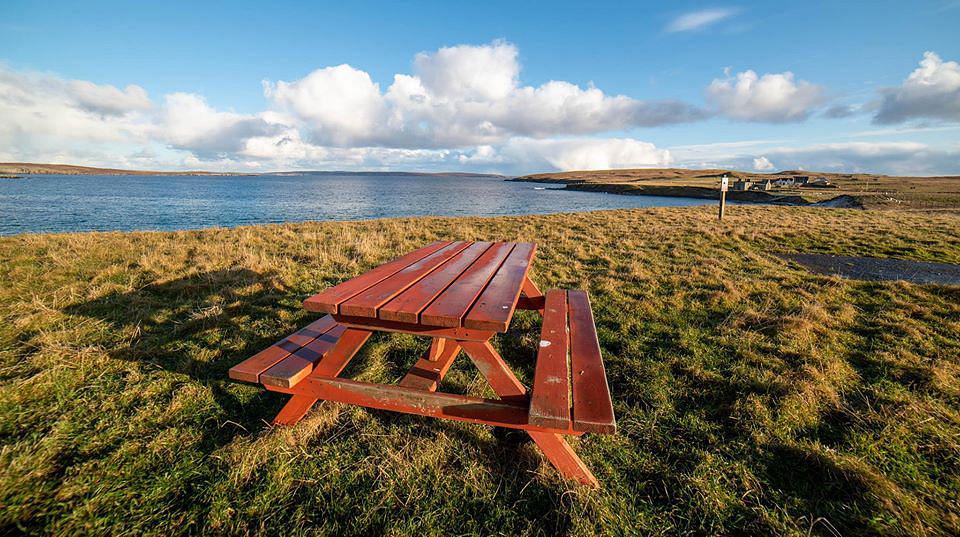
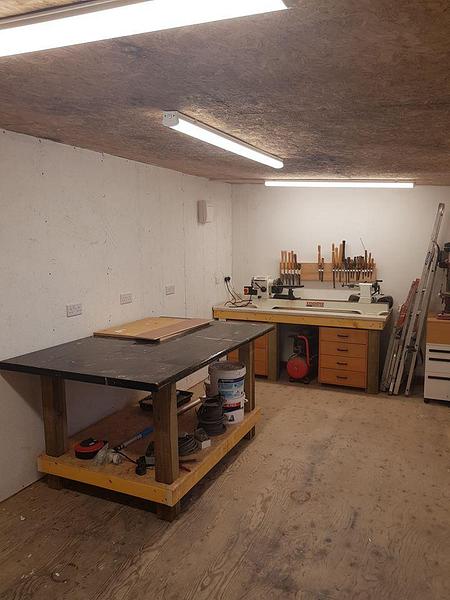

.JPG)
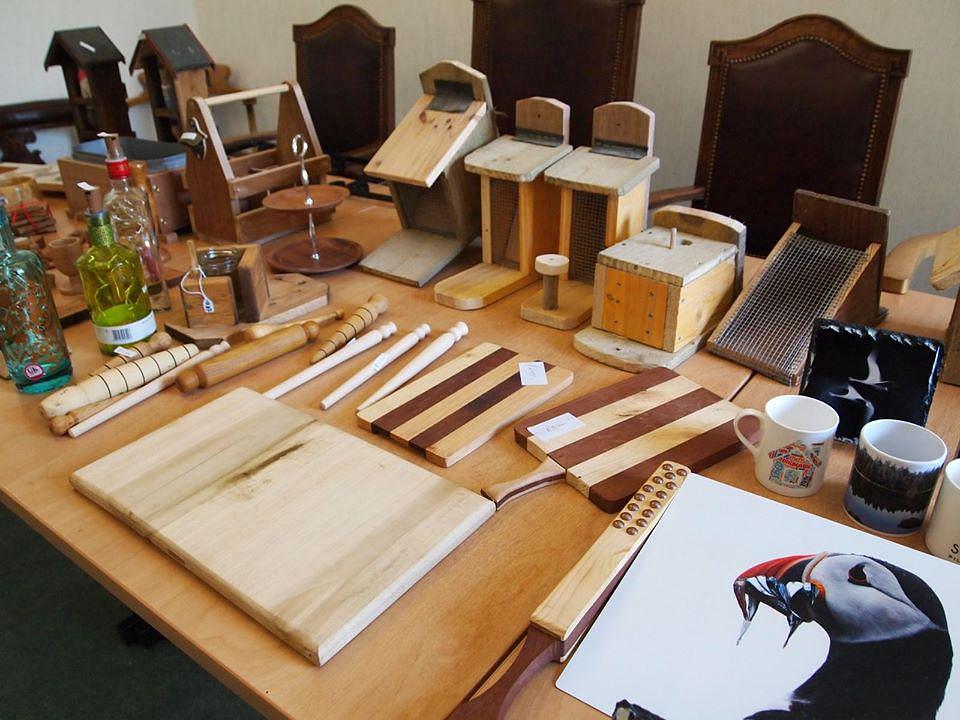
.JPG)
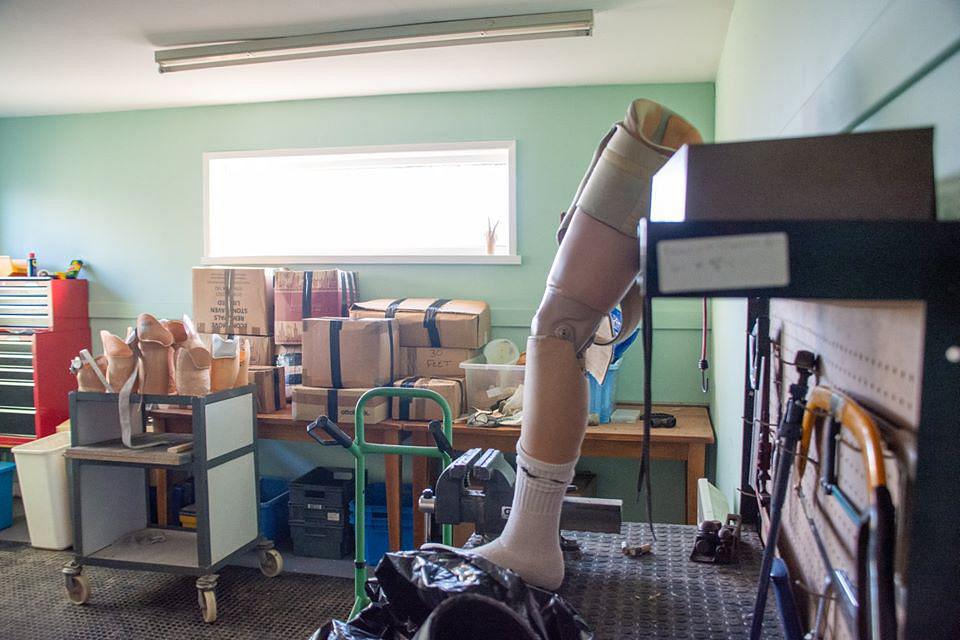
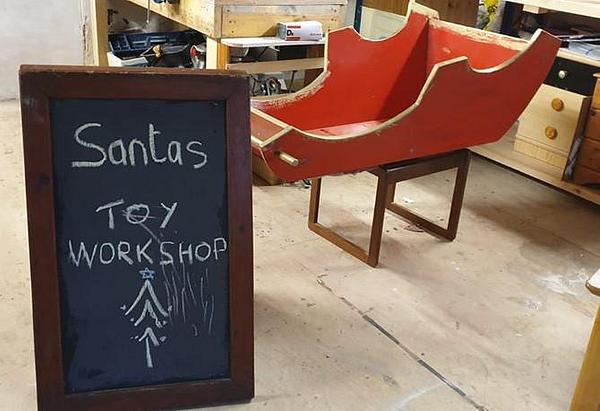
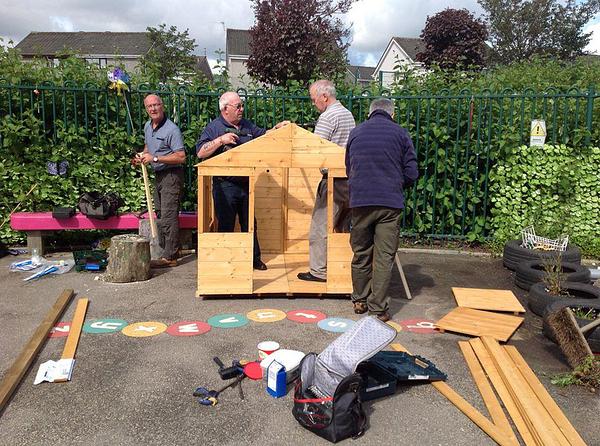
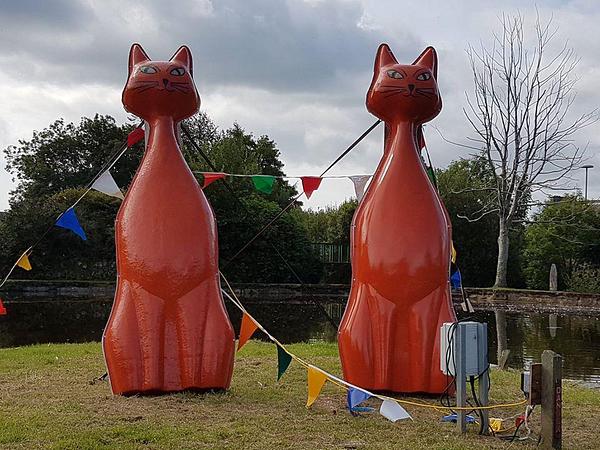

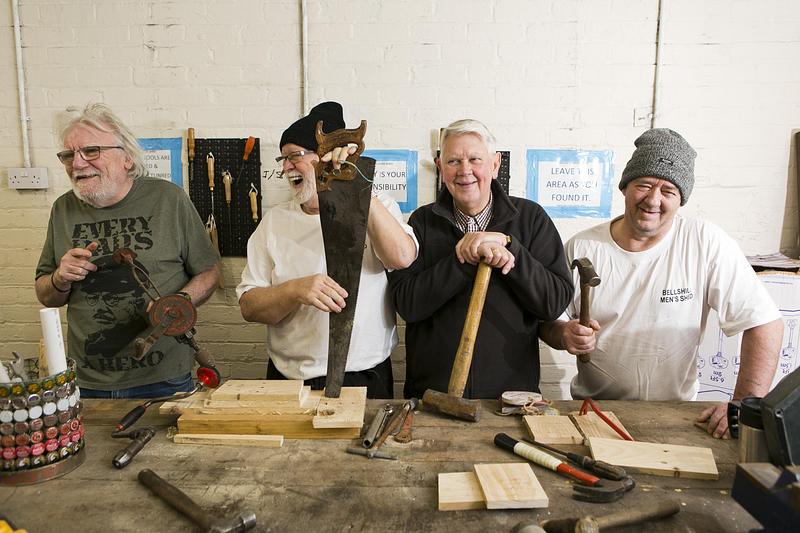
.JPG)
.jpg)